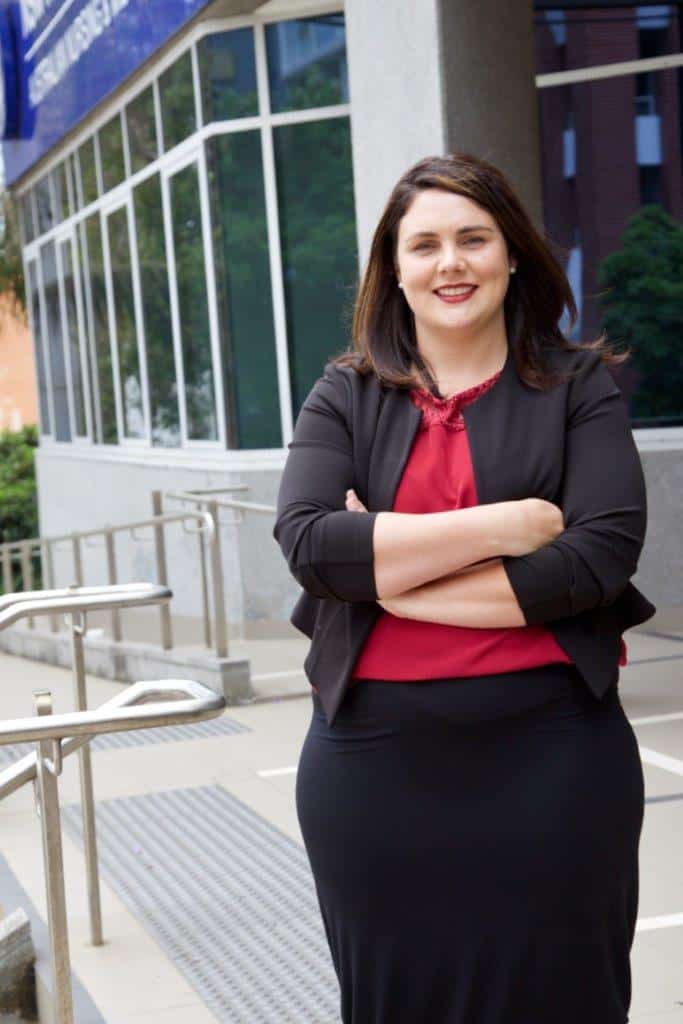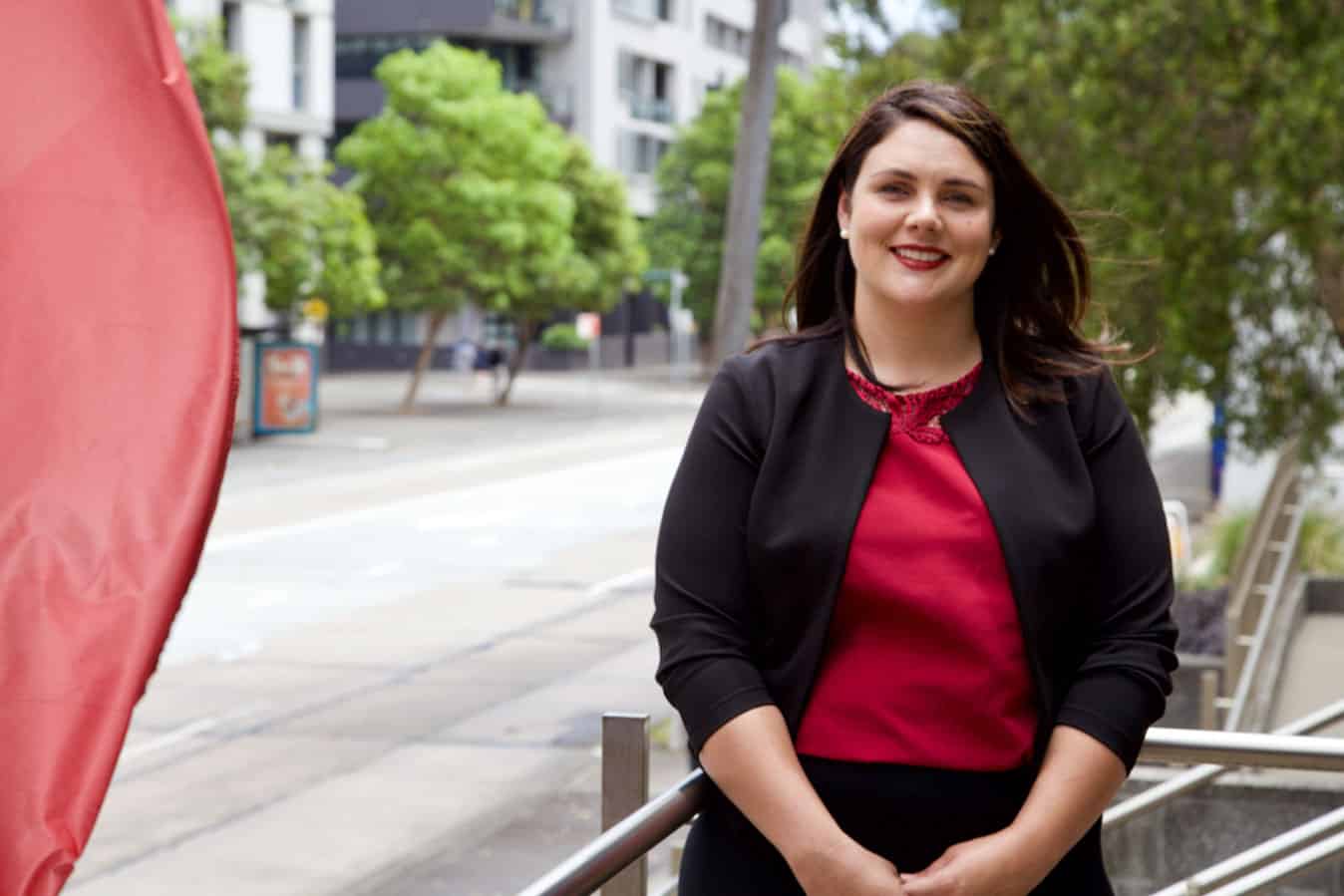Nurse Shaye Candish pivoted from the hustle and bustle of the Emergency Department to take up the challenge of building union power as an Organiser with the New South Wales Nurses and Midwives’ Association (NSWNMA).
Shaye shares her journey with the ANMJ and what continues to drive her to improve conditions for nurses, midwives and carers across the state.
Tell us about your nursing career before becoming an Organiser
I worked in ED before I became an Organiser, in a metro hospital in South West Sydney. I was placed in ED on my first new grad rotation and I immediately fell in love with the speciality and the team I was working with. It was a wonderful privilege to work with so many talented clinicians and they were so keen to share their knowledge, so I had wonderful development opportunities and thrived in this environment.
What inspired you to become an Organiser with the NSWNMA?
I actually had very limited experience with Organisers [in the workplace while working clinically]. I contacted the union head office to get some advice about rostering and part of the education empowered me to have a greater understanding of my workplace rights overall. This knowledge highlighted the many flaws in our staffing system and a few colleagues and I started a staffing campaign. The experience opened my eyes to the career options for nurses in the industrial field. Prior to this, I had only considered either management or education.
Did you have to undertake additional training for the role?
Yes, lots of training, and I continue to access professional development in the Industrial/Organising field. Like nursing and midwifery, it’s great to be informed of best practice, changes to legislation and new developments.
(To be considered for a position as an Organiser, Essential Criteria includes demonstrated commitment to the union movement, commitment to acquiring and developing the skills of organising, demonstrated commitment to the professions and the capacity to listen.)
What are the key responsibilities of being an Organiser?
I work with nurses and midwives to have influence over the decisions made in their workplace. I empower NSWNMA members to act collectively with their colleagues and seek the changes they need to do their jobs to the best of their ability. I guide members through a framework that gives them democracy and structure and I grow and nurture leadership among members to help them lead their peers.
(According to the NSWNMA, a role as an Organiser within the Member Organising Team involves building union power through systemic organisation, recruiting members, developing and implementing formal organising plans to form new workplace branches and retain existing branches, participating in workplace campaigns, and contributing to the union’s goals to achieve collective outcomes.

What sectors are you currently working with and what are the major goals?
I am currently one of two co-managers overseeing the work of the aged care and private hospitals Organising Team.
This team is responsible for growing and empowering members in the aged care and private hospitals sector, to achieve improvements to pay and conditions.
This team is also responsible for the ANMF NSW state branch contribution to the National Aged Care campaign.
What key attributes must Organisers possess to succeed?
Most skills can be taught but the drive to seek change is vital for people in this work. This job can be tough, but knowing what we can achieve when we work together is the passion that keeps us going. Values like fairness, respect and equality are fundamental to this work and help us make meaningful and lasting change.
What do you love most about the job and what are some of the most memorable campaigns you’ve been involved with?
I love working with members the most and I learn so much from them. I have been very fortunate to work with members from many different hospitals across NSW over the years and I am constantly amazed by the work that these men and women do, often under incredible circumstances.
I have [been involved in] two memorable campaigns – the anti-privatisation campaign we ran with all health unions to stop the privatisation of five regional hospitals, and the 2018 ratios campaign. Both of these campaigns involved our members stepping out of their comfort zones and trying lots of new activities to bring awareness to the campaigns.
They [members] connected with their communities, engaged with their local politicians and spoke to the media. Our members were considered a respected authority on the matters they discussed and I felt very proud to help them develop the skills and confidence to do this critical work.
How did the COVID-19 pandemic impact the way Organisers work and connect with members?
I was on parental leave as the COVID-19 pandemic started but my colleagues experienced significant challenges. They transformed their entire method of interacting and this was particularly difficult since our work often relies on engaging with large numbers of people.
Like all workplaces, we shifted online and found ways to communicate with our members that ensured we could comply with any relevant restrictions whilst also maintaining the democratic nature of decision-making.
What advice can you give nurses and midwives aspiring to become an Organiser?
Get involved in your workplace. Become a union rep or join your workplace branch and start working with your colleagues to achieve the changes needed.
An Organiser is an extension of this work, so if you love being involved at your workplace level, you will love the work of an Organiser.








